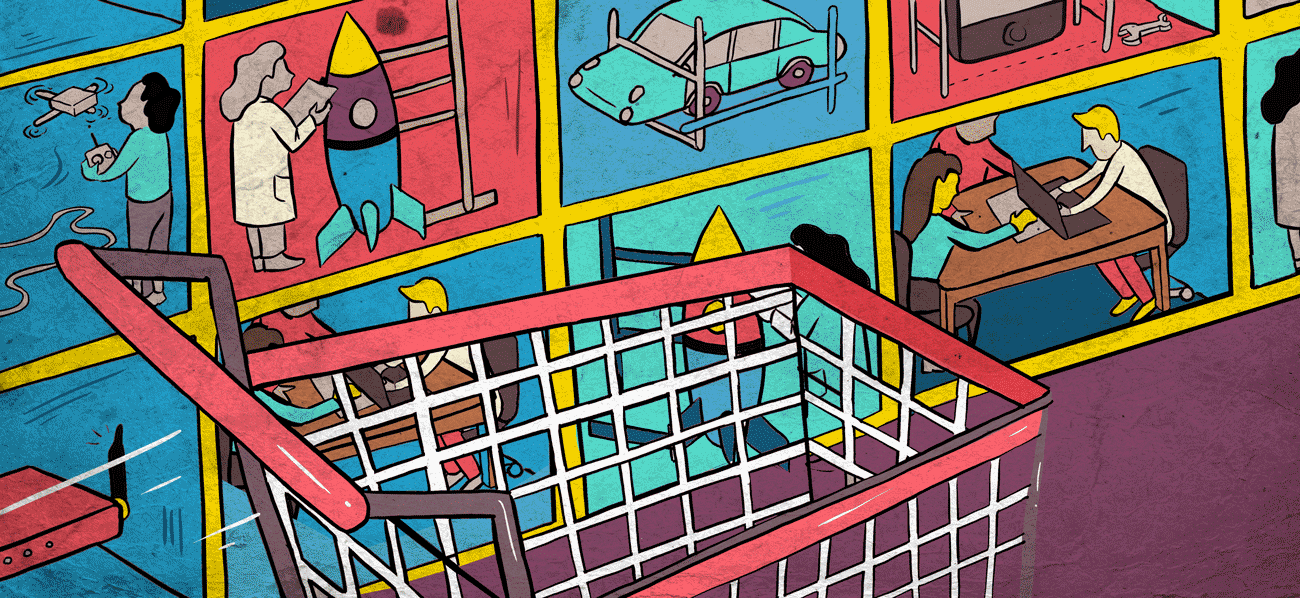News broke yesterday that the Financial Times has purchased “a controlling stake” in TNW, also known as The Next Web. The paper wanted a piece of the TNW’s lucrative events business, according to a report from Digiday.
Subscribe to the Crunchbase Daily
In a statement, FT said that TNW is “an established and profitable business,” making it a rare breed of acquisition in the media or technology worlds. Most companies that find new homes from those business sectors don’t come with positive cash flow, let alone what we’re led to believe is The Next Web’s net income.
TNW is a blog, events company, and partial Crunchbase competitor. It’s something of a chimera. Really it is similar in spirit to what TechCrunch was before AOL bought it; before that deal, TechCrunch owned Crunchbase and was also a fusion of media, events, and data. (Disclosures: AOL purchased Crunchbase in the same deal, later spinning out Crunchbase News’s parent company and selling itself to Verizon in a deal that went well.)
The FT-TNW deal is the first bit of news from the last few months that’s made me smile. That’s because TNW is a company that’s special to me. It was the first place that hired me to write for money. It also sent me around the world and asked a lot of me when I didn’t know a damn thing. And it bought my college books and most of that time’s constituent hangovers.
We cover acquisitions here at Crunchbase News when they smack the zeitgeist, or one of us on the team finds them of particular note. This deal is a bit of both. So, let me jot down some memories for the record about what TNW was like back when I joined.
The Past
According to the modern-day Encyclopedia Galactica1 I joined TNW in September of 2009. That was the start of my second year of college. A startup I’d founded with the Clicky crew had gone bust (TechCrunch covered our pre-launch, launch, and quick death) and I was bored. After banding together with a few friends, including Crunchbase News’s Holden Page, we founded a tech blog and made effectively zero dollars.
TNW hired me away from that motley team to be its first U.S.-based reporter back when the crew was Zee Kane and Martin Bryant. I think I beat Matt Brian (now of Engadget) to the payroll but could have that wrong.
2009 was a hell of a year. TNW sent me to L.A. to attend Microsoft’s Professional Developers Conference. The company didn’t know much about the layout of the city, so I wound up staying in a Disney-themed hotel in Anaheim and hoofing it across the city (this was before Uber) to the event. I was 20 years old or so at the time, and missing that week of school landed me what I think was the lowest GPA of my college experience.
That trip also marked the first time I went on television. The job eventually took me all around the country and to Brazil and Holland and Russia and China.
Back from L.A. I dropped economics at university because it was hard and wound up taking philosophy classes since they didn’t have problem sets. That left me more time to blog.
TNW the publication grew quickly, adding writers to the staff that you still read today. Matt Brian is one but there was also Ken Yeung (later VentureBeat and now Flipboard) and Matthew Panzarino (TNW’s eventual editor in chief who now runs TechCrunch). Others included Jamillah Knowles (now at Reuters), Hermione Way (wound up at Tinder for a while, now does brand stuff), Jon Russell (now at TechCrunch), Courtney Boyd Myers (now doing startup things), Emil Protalinksi (now VentureBeat) and Harrison Weber (later VentureBeat and Gizmodo and currently on break), and more. (Shit, and Drew! And Joel! And Josh! And Brad!)
It was a stupid-good crew of folks.
All the while Boris and Patrick, two more members of the Twitter First Name club along with Zee and myself, kept the operation humming from Holland with the home team while the rest of us scuttled around doing our best to keep the writing coming.
We nearly knocked TechCrunch off the top Techmeme perch before that goal faded and TNW went through a few revisions. I stuck around through college and into my adult life, even moving to San Francisco for the publication until I eventually left and joined TechCrunch. (Fun fact: Panzarino was my boss at TNW; later he joined TechCrunch after I did and then became my boss again, of all things).
TNW was all the good things about the Internet and some of the bad. It was raucous and silly and all-hours and all-consuming (I moved my classes to the morning so I could write all afternoon after a stiff cocktail of cheap vodka and Amp). It didn’t pay super well and for some reason I got paid over PayPal for a while. I also learned about the tax structure in America for contractors the hard way.
But the blog grew up and the company kept maturing and now it’s part of a paper that I’ve long respected. It’s a good result for people I really like and who have worked very hard. It’s a media success story of sorts in a time when we don’t have many. And it’s an exit for the Dutch tech scene, which is good too.
For Boris and Patrick and the rest of the crew there, it must be a good day. May the pirates win more often.
Illustration: Li-Anne Dias
The lesser of the tomes available in Douglas Adams’ universe, as you recall.↩

Stay up to date with recent funding rounds, acquisitions, and more with the Crunchbase Daily.







![Illustration of stopwatch - AI [Dom Guzman]](https://news.crunchbase.com/wp-content/uploads/Halftime-AI-1-300x168.jpg)


67.1K Followers